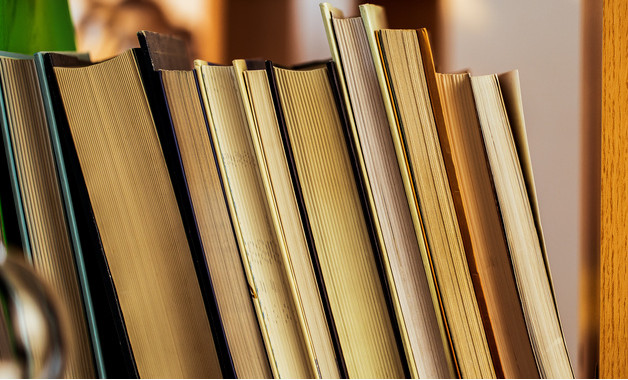
第1篇 第16届21世纪杯全国英语比赛演讲稿
have you ever bought any food on the train? and do you ask for the receipt after buying it? nowadays, all trains in china provide its passengers with receipts for commodities, but 7 years ago, things were quite different.
on 13th of october, 20xx, the train t109 from beijing to shanghai was speeding on the railway. a graduate student bought a sausage at 1 yuan on the train, then asked for a receipt.
“are you kidding? it’s just one yuan!” the crew member was surprised.
the student, however, answered in a determined voice, “i paid the money, so i deserve the receipt.”
“but we never give receipts on the train.’ as a result, his further request was turned down by a cold shoulder.
several days later, the student sued the national railway ministry, for not providing receipts for passengers.
to his dismay, the court turned down the case for lack of evidence. but he, who majored in law at that time, believed law as a most powerful weapon, so he did not give up. instead, he began his journey of collecting first-hand evidence by taking trains and buying commodities aboard. when his classmates were playing soccer, he was taking the train; when his classmates were buying food at mcdonald’s, he was buying food on the train; when his classmates were asking girls out, he was asking for the receipts. as he joked, ‘i was either taking the train or on the way to take the train.’
one month later, he appeared in the court again, with newly-collected evidence and a stronger confidence. and i guess, ladies and gentlemen, you will all cheer for the result because this time, the student won the case. very soon, a regulation about receipts on the train came out. and whatever we buy on the train now, there’s a receipt for us.
outside the court, the student was asked, “how do you make it to the end?” he said, “as a law student, i root my faith in law. i believe that law is there, to protect every person with no exception, and to ensure every person has a say.”
his words spread a strong faith in law, which is not only a doctrine of a law student, but also a belief that all citizens ought to hold. it is this faith that initiates the student to resort to law for a tiny issue; it is this faith that supports him to endure all the exhausting trips when collecting evidence; it is this faith that makes a seemingly “ridiculous” receipt request legal and rightful. it is this faith that helps to change our life, enhance our judicial system and bring social justice.
to many, a receipt of 1 yuan is too small to mention, however rights are to be respected and law is to be believed in. it all starts with a tiny receipt of 1 yuan, but we get a monumental case, a new regulation and a bumper harvest in social justice. the bridge that leads a tiny start to a bumper harvest is faith, the faith in law, rightful and strong.
许吉如,女,1992年6月出生,清华大学法学院,20xx年12月获第xx届“21世纪杯”全国英语演讲比赛北京赛区总决赛冠军。 南京申办20xx年青奥会形象大使,20xx年2月随中国代表团赴温哥华申奥。 奥冠体育俱乐部形象大使。
第16届21世纪杯全国英语比赛演讲稿
第2篇 21世纪杯学生比赛英语演讲稿范文
east and west have met
runner-up: rui cheng gang, foreign affair college
honorable judges, ladies and gentlemen:
kipling said:" east is east, and west is west, and never the twain shall meet!" but now, a century later, they have met.
they have met in business. they have met in education. they have met in the arts.
some would argue that these meetings leave us with a choice between east and west ,but i believe the best future lies in the creative combination of both worlds. we can make western ideas, customs and technology our own, and adapt them to our own use. we can enjoy the best of all worlds, because our tradition is, above all, one of selecting the best and making it our own.
but, do western styles and values threaten our identity?
history makes it easy for us to think so-perhaps too easy.
some people seem to think that adopting western customs, such as a bride wearing white-which has long been a color of mourning in china, instead of the traditional chinese red for her wedding, is another submission to foreign intervention,--a betrayal of our heritage, they say.
they fear that as we become "globalized", we will no longer be chinese.
i do not agree.
history teachers that a strong and confident nation is at ease in hearing from the outside world.
the wedding of eastern and western cultures, whether in white gowns or red, brings us variety.
it is a rich banquet of special foods from all over the world.
as an amateur gourmet of chinese cuisine, our superb flavours delight me.
but my chinese taste appreciates food from any land.
i even allow the convenience of mcdonald's a place in my life without giving up my good taste.
my grandfather taught me to hum tunes of beijing opera from the time i was very young; they are deep in my spirit, part of my soul.
i love beijing opera, because it always reminds me of who i am.
but i am also a fan of modern pop music, the no.1 fan of spice girls on campus.
of course, it goes far beyond food, music and dance. it goes into values and ways of thinking about the world.
once upon a time, or so my teacher told me, a chinese boy and an american girl had a squabble.
both wanted to keep a bunny rabbit they had found in the garden.
surely you've seen a rabbit sunning himself in the grass.
nothing is more lovable, nothing more natural. no wonder they wanted him. the chinese boy played his er-hu. happiness and joy, longing and passion, filled the air. the little rabbit swayed gently and began to move his ears in the direction of the music. he liked what he heard.
the girl then took out her violin and played it to produce beautiful melodies of her own.
the rabbit began to bounce in her direction.
so intent were the children on their own music that neither paid the other any attention.
the competing melodies confused the little rabbit and he did not know which way to turn .unable to attract the little creature, both children gave up ;they walked away, in different directions, leaving the rabbit. . .alone.
but, what if they listened ,what if they really heard each other's music, instead of always playing their own tunes?
when i hear the music of a violin ,rich with the joys of men and women who came together and sang and danced.. . i hear echoes of the music of the grass lands, of the hills, of the rivers...of my own native land.
is music mine and yours, or is it ours?
what i want to hear is the er-hu and the violin played together, in rhythm and in tune. together, we can produce new and beautiful music, rich with textures and sounds that can only be made in harmony.
the rabbit sits in the grass in the ever-warming sun. waiting for us to play, waiting for the symphony to begin.
will he have to wait forever? the choice is ours . thank you.
尊敬的评委、女士们、先生们:吉卜林说过,“东方是东方,西方是西方,两者永不聚!”然而如今,在一个世纪之后,东西方相聚了。
它们在贸易中相聚,在教育中相聚,在艺术中相聚。
有人争论说这种东西方之聚,使得我们能够在东西方中作出选择.然而我相信最美好的未来在于东西方世界的创造性的结合,我们可以变西方的观念、习俗、技术为己所有,为己所用;我们可以享受两上不同世界之精华,总之,我们的传统之一就是择其精华,为己所用。
然而,西方的生活方式和价值会威胁到我们的民族特色吗?
历史让我们轻易相信——也许是太轻易地让我们相信此说了。
有人似乎认为彩西方习俗,比如新娘结婚穿白色婚纱,是对外国介入的屈服,是对传统遗产的背叛,因为按中国传统,结婚新娘要穿红色,而白色长期以来代表的是哀悼。
这些人担心一量我们变得全球化,我们也就不在是中国人了。
我不这样认为。
历史告诉我们:一个强大自信的民族学起外面的世界易如反掌 。
无论是穿白衣还是黑衣,还是东西方异质文化的联姻,都给我们带来多姿多采的生活。
东西方异质文化的联姻是一席来自世界各地佳肴的盛宴。
身为中国菜的业余美食家,我喜欢民族的佳肴。
然而我的中国口味也欣赏异国的风味。
生活中我为简便吃麦当劳,却不会放弃自己的良好口味。
从小祖父就教我哼唱京剧,京剧深入我的精神之中,成为我灵魂的一部分。
我热爱京剧,因为京剧让我总想起自己是谁。
但是我也迷恋现代流行音乐,在学校里还是“辣味女孩”的头号歌迷。
当然,异质文化的交流远不止于食物、音乐和舞蹈,它深入到价值观和世界观。 有一次老师给我讲了一个中国男孩和一个美国女孩发生争执的故事。
在花园里他们俩发现了一只小兔,两人都想要。
你肯定见过草丛中晒太阳的小兔。
没什么东西比小兔子更可爱的,更富有自然情趣了,难怪他们两人都想要它。
男孩拉起了二胡,愉快喜悦的琴声,充满了渴望和激情,回荡在空中,小兔子听着这音乐轻轻摇摆,耳朵转向音乐,它喜爱男孩的琴声。
女孩也取出小提琴,拉出悠扬的旋律。
小兔子听了朝她跑去。
两人都全神贯注于自己的音乐,丝毫没注意对方演奏的音乐。
炕杂在一块的音乐困惑了小兔子,它不知该朝哪走。男孩和女孩都不能将小兔子吸引过来,只好放弃,各自走开了,扔下小兔子独自一人。
然而倘若他们倾听对方的音乐,而不是各自为歌,那么结果会如何呢?
当我听到小提琴声响起,男男女女走道一起又唱又跳,乐声中充满了欢乐, 此时我也听见了草原上、山谷间、小河旁传来得我们本民族的音乐的回声。
音乐分你我,还是属于我们大家?
我想听的是二胡与小提琴的合奏,旋律与节奏和谐一致。
大家一起才能创造出新颖动听音乐, 只有在和谐中大家才能创造出富有神韵的乐声。
在温暖的阳光中,小兔子在等待着我们一起演奏,等待着交响乐开始。
他有必要再永远的等下去吗?决择在于我们自己。谢谢。
21世纪杯学生比赛英语演讲稿范文
第3篇 21世纪杯英语风采比赛获奖者演讲稿
change
leo tolstoy once said, everyone thinks of changing the world, but no one thinks of changing himself.
he is right. we always have great plans and dreams in our minds… too ready to achieve something grand that changes the world or benefits all of mankind .for example; we hate pollution and have made up our minds to find new energy sources that keep the environment clean. yet we still litter on the ground. we complain about traffic jams, so we plan to build more highways to solve the problem, but it never occurs to us that our failure to follow traffic regulations is the leading cause of this situation. we are so concerned that the violence in the media has a bad impact on our children, we urge the government to set laws to protect them. but, do we, as adults, set a good example for our kids? we use nasty words and even spit on the ground in front of them, i dare to say, we harm more!
in my opinion, before we decide to change the world, we had better change ourselves first. as ordinary individuals, we do not have the power to change the world. but we can change our habit of littering, spitting, cussing, we can respect the environment around us, we must act as good models for our kids.
if each of us does all of these little things, all of us, millions and millions of individuals together, together we will be strong …strong enough to change our world!
so please, the next time you do something, think how your actions influence not only you, but those around you too, especially our children …and perhaps more importantly…our planet!
改变
列夫·托尔斯泰曾说过:每个人都想改变这个世界,但是没有人想到改变自己。
他说的很有道理,我们每个人都心怀伟大时志向,时刻准备去干一番能造福全人类的大事业。比如,我们痛恨环境污染,所以我们下定决心去开发新的更高效更干净的能源来保护我们的环境,但是同时我们却随手乱扔垃圾;我们抱怨大城市的交通堵塞,计划造更多的高速路来解决交通问题,但是我们从来没有想过,如果我们能遵守交通规则话,那么这一问题是不是可以得到很大得缓解呢?我们担心电视电影里面得暴力会对我们得孩子产生不良的影响,于是我们敦促政府通过立法来保护未成年人,但是我们这些大人又做得怎么样呢?我们为我们的下一代做好了表率吗?我们说粗话,甚至在孩子面前抽烟。不客气地说,我们对孩子的不良影响更多!
在我看来,在我们打算改变这个世界之前,我们最好先改变一下自己。作为一个普通人,我们其实没有改变这个世界的能力,但是我可以改变我们随地扔垃圾,随地吐痰的坏习惯, 我们应该学会去保护环境,我们应该为我们的孩子起好的表率作用。
如果我们每个人都能从小事起,那么千千万万个人力量汇聚在一起,那力量是强大的,足以改变这个世界。
朋友,当您在做某一件事情的时候,请您想一想,您的行为会对您周围的人产生怎样的影响, 因为,您的行为不单单影响到您自己,还有您周围的人,更重要的是我们的孩子…甚至我们的世界。
21世纪杯英语风采比赛获奖者演讲稿
第4篇 "21世纪杯"英语演讲比赛决赛演讲稿集锦
决赛特等奖选手
2018级 陈若曦
honorable judges and dear fellow students,
just as most people here,when i first saw the topic reform and opening-up policies,a voice came out,saying what a grand scale!then those big events,such as china's accession to wto,the launch of shenzhou and the submersion of jiaolong flashed through my mind.however,at this moment i stand on the stage as a member of chinese youth,i'm not gonna draw a magnificent blueprint for you.what i exactly want is to find out the relation between chinese youth and this era of reform and opening-up.
it is known to all that in the past 40 years,china has captured the opportunity provided by globalization and grown rapidly from nobody to the second-largest economy in the world.in this context,it could be said that we young people have had better resources than ever before.to be more specific,let's pick up some daily life's fragments: for example,one sunday morning,you don't feel like going outside,so you pull out your smartphone and quickly order a takeout on app to comfort your empty stomach.in another case ,there's been a discount on taobao .after struggling with your equipment and the net speed,you finally got your favorite goods at the best prize,because the most complete supply chain and logistic chain worldwide will solve the remaining work for you,so all you have to do is waiting. not to mention the increasing number of people going abroad,with a chinese passport,they are entitled to travel around the world and come back home safely.
but now i wonder how many of you have realized that this convenience,this sense of security does't come out of air,surely we could regard it as the product of reform and opening-up policies,nevertheless,do you really understand what are behind those achievements?there is a saying, if you live at ease , that is because there are a great many people who are working for you in silence.they might be the politicians and entrepreneurs who climb into the raging flow to explore and promote the system construction of market economy,they might be the intellectuals who devote their lives to prompting the engine of development,and they might be every single person we have access to.
in other words,we youth do not take it for granted,the more resources we possess means the more responsibility we will shoulder.when the 95s were claimed to be the new youth in china and the first millennial stepped into campus,baton of the era has also been approaching.although china is moving firmly towards its goal of rejuvenation ,deficiencies and problems still exist.so in this sense,we youth ought to grow stronger to sustain the potentiality of development.with the baton in hands,do not afraid to embrace the mercurial society ,do not afraid to change the future.so that as the new youth we could feel more emboldened to say that facing the reform and opening-up policies we are not only the gainers but also the successors!thank you!
决赛二等奖 张亦弛
reform and opening-up : dare to embrace the world
good afternoon everyone, my name is jack. it’s my great privilege to stand here and share my own perspective about 40 years’ reform and opening-up.
through the long history of china, reform is easy to witness. some reforms just shifted the rulers’ name yet had little influence on the society. others, however, can be revolutionary and our reform and opening-up policy is one of them.
born in 21st century, it is hard to have the exact feeling about the life before 1978.luckily, i can grasp some information from my parents and my grandparents.
on a personal note, the most impressive change that has occurred during the 40 years is people’s concept of living, or to be specific, the concept of allocating their salary. for instance, elder people like my grandparents always cut off their monthly budget and then save the surplus money into the bank account. while young adults are more likely to use the remaining salary to do some investment or with the loan if necessary. i did ask my grandparents why not follow suit, they told me it had risks that they didn’t want to take. apparently, we stand in this period and all know that such kind of trade and investment is helpful to the economy ascent. thanks to mr. deng’s policy, we can now dare to trade both domestically and internationally.
beside economy, swift development in other aspects is also prodigious. as you can see, skyscrapers stand in the city and huts are no more. cars take the main avenue and bikes step aside. various travel modes are available for common civilians. imagine, what kind of condition we may live in if the reform and opening-up policy is absent? do you want to live in the condition that was similar to forty years ago. ok, back to the point, when mentioning transportation, you all know what i am going to talk about is our high speed-rail whose both speed and technology top all over the world. dating back to 40 years ago, it is nearly impossible for people to imagine such changes can literally take place. due to the reform and opening-up, i can now jump out of the well and embrace the world. flash as 40 years may be, we indeed witness and experience the happiness that the reform and opening-up has brought us.
therefore, as a freshman, it is my duty and also our duty to be explicit about our directions and master adequate professional knowledge which will be the basis of our contributions to the community and creating harmonious environment for the next generation. do not be afraid that your contribution may not be considered as innovative as deng xiao pin did, because it is the little parts that you have done that build up the world we live in today.
in the end, i have to say that reform and opening-up is a great fortune for every chinese. owing to the window it opens for us, i can now embrace the world.
that’s all. thank you.
文字来源:陈若曦 张亦弛
第5篇 21世纪爱立信杯英语演讲比赛冠军得主演讲稿
to me march 28th was a lucky day. it was on that particular evening that i found myself at central stage, in the spotlight. winning the ”21st century·ericsson cup” seventh national english speaking competition is a memory that i shall treasure and one that will surely stay.
more important than winning the cup is the friendship that has been established and developed among the contestants, and the chance to communicate offstage in addition to competing onstage. also the competition helps boost public speaking in china, a skill hitherto undervalued.
for me, though, the competition is a more personal experience. habitually shy, i had been reluctant to take part in any such activities. encouraged by my friends, however, i made a last-minute decision to give it a try. in the course of preparation i somehow rediscovered myself, a truer me.
i found that, after all, i like communicating with other people; that exchanging views can be so much fun—and so much rewarding, both emotionally and intellectually; that public speaking is most effective when you are least guarded; and that it is essential to success in every walk of life.
at a more practical level, i realized knowing what you are going to say and how you are going to say it are equally important. to take the original ideas out of your head and transplant them, so to speak, to that of others, you need to have an organized mind. this ability improves with training.
yet there should not be any loss or addition or distortion in the process. those ideas that finally find their way into another head need to be recognizably yours. language is a means to transmit information, not a means to obstruct communication. it should be lucid to be penetrating.
in china, certain public speaking skills have been unduly emphasized. will it really help, we are compelled to ask, to bang at the podium or yell at the top of your lungs, if you have come with a poorly organized speech, a muddled mind, and unwillingness to truly share your views?
above all, the single most important thing i learnt was that as a public speaker, you need to pay attention, first and foremost, to the content of your speech. and second, the structure of your speech: how one idea relates and progresses to another.
only after these come delivery and non-verbal communication: speed control, platform manner, and so on. pronunciation is important, yet of greater importance is this: is your language competent enough to express your ideas exactly the way you intend them to be understood?
i was informed afterwards that i was chosen to be the winner for my ”appropriately worded speech, excellent presence and quick-witted response”. in so remarking, the judges clearly showed their preference: they come to listen for meaningful ideas, not for loose judgments, nor easy laughters.
some contestants failed to address their questions head on. some were able to, but did not know where to stop—the dragging on betrayed their lack of confidence. the root cause was that they did not listen attentively to the questions. or they were thinking of what they had prepared.
as i said in my speech, ”it is vitally important that we young people do more serious thinking ... to take them [issues like globalization] on and give them honest thinking is the first step to be prepared for both opportunities and challenges coming our way”. we need to respond honestly.
a competition like this draws talented students from all over the country. and of course, i learnt more things than just about public speaking. since in the final analysis, public speaking is all about effective communication. and this goes true for all communications, whatever their setting.
and the following is the final version of my speech:
globalization: opportunities and challenges for china's younger generation
thirty years ago, american president richard nixon made an epoch-making visit to china, a country still isolated at that time. premier zhou enlai said to him, ”your handshake came over the vastest ocean in the world—twenty-five years of no communication”. thirty years since, china and america have exchanged many handshakes. the fundamental implication of this example is that the need to communicate across differences in culture and ideology is not only felt by the two countries but by many other nations as well.
as we can see today, environmentalists from different countries are making joint efforts to address the issue of global warming, economists are seeking solutions to financial crises that rage in a particular region but nonetheless cripple the world economy, and politicians and diplomats are getting together to discuss the issue of combating terrorism. peace and prosperity has become a common goal that we are striving for all over the world. underlying this mighty trend of global communication is the echo of e. m. forster's words ”only connect!”
with the it revolution, traditional boundaries of human society fall away. our culture, politics, society and commerce are being sloshed into one large melting pot of humanity. in this interlinked world, there are no outsiders, for a disturbance in one place is likely to impact other parts of the globe. we have begun to realize that a world divided cannot endure.
china is now actively integrating into the world. our recent entry to the wto is a good example. for decades, we have taken pride in being self-reliant, but now we realize the importance of participating in and contributing to a broader economic order. from a precarious role in the world arena to our present wto membership, we have come a long way.
but what does the way ahead look like? in some parts of the world people are demonstrating against globalization. are they justified, then, in criticizing the globalizing world? instead of narrowing the gap between the rich and the poor, they say, globalization enables the developed nations to swallow the developing nations' wealth in debts and interest. globalization, they argue, should be about a common interest in every other nation's economic health.
we are reminded by karl marx that capital goes beyond national borders and eludes control from any other entity. this has become a reality. multinational corporations are seeking the lowest cost, the largest market, and the most favourable policy. they are often powerful lobbyists in government decision-making, ruthless expansionists in the global market and a devastating presence to local businesses.
for china, still more challenges exist. how are we going to ensure a smooth transition from the planned economy to a market-based one? how to construct a legal system that is sound enough and broad enough to respond to the needs of a dynamic society? how to maintain our cultural identity in an increasingly homogeneous world? and how to define greatness in our rise as a peace-loving nation? globalization entails questions that concern us all.
like many young people my age in china, i want to see my country get prosperous and enjoy respect in the international community. but it seems to me that mere patriotism is not just enough. it is vitally important that we young people do more serious thinking and broaden our mind to bigger issues. there might never be easy answers to those issues such as globalization, but to take them on and give them honest thinking is the first step to be prepared for both opportunities and challenges coming our way. this is also one of the thoughts that came to me while preparing this speech.
第6篇 第十五届“21世纪杯”全国英语演讲比赛冠军李亿英语演讲稿
ladies and gentlemen:
how well are we in tune with the rhythm of life? in our busy day to day existence, we don’t often stop to ask ourselves this question. at least i don’t. and it wasn’t until i joined a competitive sporting event that i learned a most important lesson – we must place our mind in harmony with the natural order of things to be successful.
let me tell you what happened.
i decided to take part in an international marathon in my hometown last year. being an ambitious person, i hoped to finish it within 5 hours, accompanied by my friend with whom i had trained.
the big day finally arrived. “ready...set...bang” and we were off.
at first, we kept a rapid pace and ran nonstop. at this pace, we finished the first 20 kilometers in 2 hours and i thought running a marathon was a piece of cake. then my running mate began to slow down. i urged him to keep running at the same pace but he said no, he wanted to conserve his energy. i felt i had partnered with the wrong person, therefore, i sprinted on and left him behind in the dust.
a few kilometers later, i began to understand his strategy as my pace slowed to a jog then a walk. after that i was incapable of moving another step. i was humiliated as more and more people ran passed me. more than once i thought “maybe i should quit.” i started to doubt my ability to finish this race.
at this moment, my running mate caught up with me and slapped me on the back. “follow me,” he shouted. he had balanced his marathon pace and was encouraged me to do the same. for the rest of this grueling contest, we walked, jogged, ran a few miles, and walked again. slowly, painfully but hopefully this time, we established the most suitable pace within the natural flow of our physical capabilities.
eventually we accomplished our first marathon of 42 kilometers in 4 and half hours. i asked myself, what did this marathon mean to me? my marathon experience became an influential metaphor for my life about how we must learn to pace ourselves in everything, by being in tune with the rhythm of life.
like the tide that ebbs and flows, we must listen to advice but make our own decisions. like the show at dawn and dusk, we must learn to balance pride and modesty. and from the way the wind can both shout and whisper, we must learn when to be strong and when to be gentle, for everything moves in its own rhythm and its own yin and yang elements. it is the interaction of these complementary extremes that produces harmony, as laozi said, extremes meet. since the marathon, this notion of two opposite forces working together has been my running partner, so to speak. yin and yang exist everywhere, constantly interacting, and never existing in an absolute condition.
ladies and gentlemen, life is like running a marathon, let us discover, define and develop a natural rhythm of life, in order to achieve both harmony and success.
thank you for listening.









